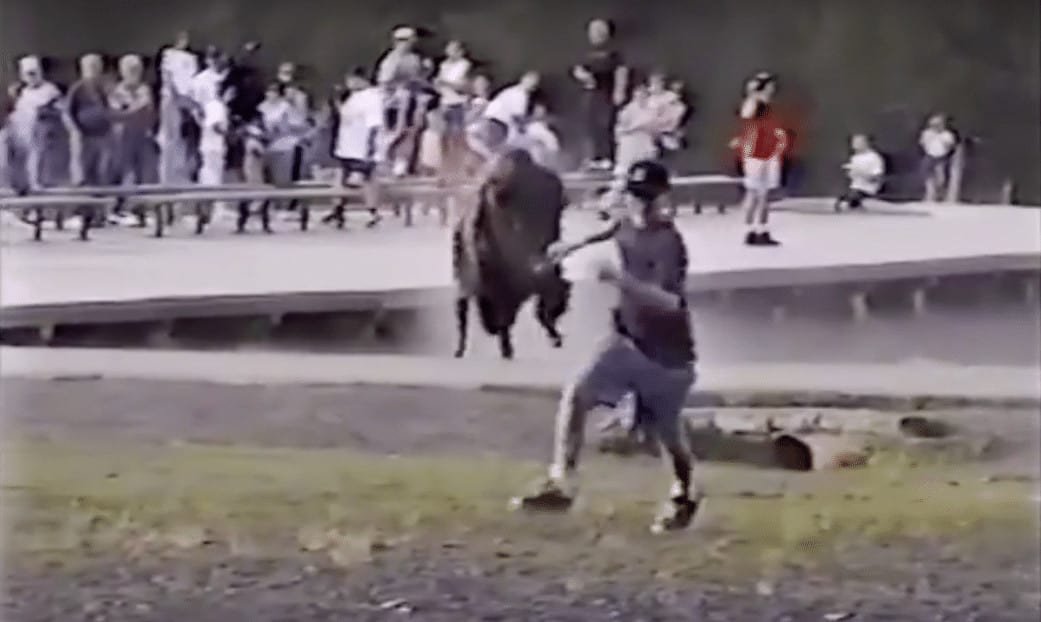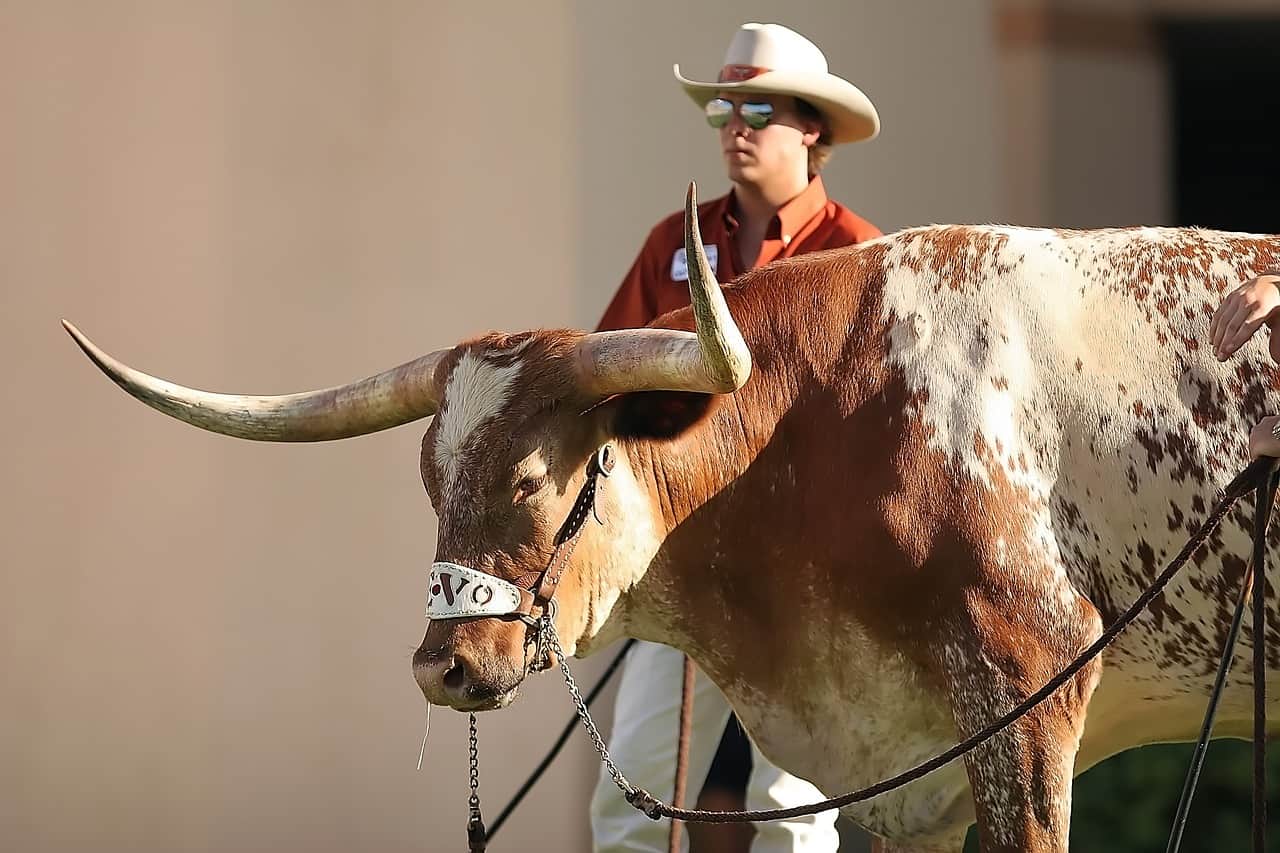
Here’s the tale of Rockwall prosecutors who charged a well-known professional fisherman with attempted theft for cheating in a bass tournament.
After it was discovered that Robby Rose, 45, of Garland, Texas, had cheated in the Bud Light Trail Lake Ray Hubbard Big Bass Tournament in order to win the grand prize, a $55,000 Legend bass boat, things didn’t go so well for him.
In order to get his Legend bass boat, Rose stuffed a 1-pound weight down a nine-pound bass before weighing it in. When his actions came to light, he was sentenced to 15 days in jail, fined $3,000, put on five years’ probation and forced to surrender his fishing license during that time.
Per ESPN: As Rose was led away, the fish handler and the tournament director, Bryan Davis, noticed a pronounced lump in the fish’s stomach. Curious, the officials touched the lump, which they found to be hard, and then placed the fish in a holding tank and moved on to weigh in other fish. However, once they placed Rose’s fish in the tank another strange thing happened.
It sank like a lead weight.
“It was just sitting on bottom of the tank,” Davis said. “Normally a fish’ll hover and not sit on the bottom. It won’t stay in one spot. This one just wasn’t moving.”
Neither Rose nor his wife wished to comment about the incident.
“Texas Parks and Wildlife (TPW) game wardens were present for the tournament, and Game Warden Tom Carbone was the first on the scene,” according to Alex Imgrund, Assistant Criminal District Attorney in Rockwall County. “From the beginning, Carbone and TPW treated the matter like a criminal investigation and took statements from tournament officials and other witnesses.”

Image: Armchair Angler
It’s no surprise that Rose was caught – considering how often professional bass fishing tournaments routinely polygraph anyone with a prize-winning catch.
“The way it works in the fishing community is everybody wants to get polygraphed, because that means you’re in the money,” said Bryan Davis, the tournament director of Bud Light Trail, a minor league bass fishing organization in Texas.
According to ESPN, Rose’s tournament career has been filled with controversy:
From 1997 to 2004, Rose tried to make it in the big leagues. He entered 21 events in the Bassmaster circuit and didn’t fare well. He never finished higher than 54th place, and finished as low as 299th place, according to Rose’s angler page on the Bassmaster website. He averaged $31.75 in winnings, which is somewhat misleading because all $666.75 he earned came in one tournament.
Having failed in his attempt to cast his lot with the bigwigs of bass fishing, Rose returned to the calmer waters of the amateur circuit — where he found success. After he won the Bass Champs tournament at Cedar Creek in February 2007, Rose’s winnings totaled $120,000 on that circuit, according to a post on the circuit’s website.

One of many memes made of the “Sinker Master”
But while Rose was reveling in that $20,000 victory, other anglers were grumbling.
Just how did Rose manage to win a team event when he was fishing solo? they wondered. And how did he manage to land a limit of five fish, when all but one of the other 234 teams in the event failed to boat five bass between two fishermen?
Captain Garry Collins of the Texas Parks and Wildlife Department says his office regularly gets complaints about cheating in fishing tournaments. Most of them are nearly impossible to prove, basically amounting to little more than hearsay — a losing angler’s sour grapes after a bad day of bass fishing.
Yet Collins and his game wardens will go to great lengths to catch these alleged cheaters in the act. In one instance, having received pages and pages of complaints against an individual, Collins mobilized all his resources. He had wardens on the banks, watching the accused angler through binoculars. He had wardens on boats, posing as competitors.
The target that day was accused of a much more common method of cheating, staking fish — catching big fish before a tournament, putting them in a wire mesh cage and then tying the cage to a branch or a stake, then retrieving the fish during the tournament and passing them off as fresh catches. Collins & Co. came up empty. “It’s really, really hard to catch ’em pulling a fish cage because they just wait ’til they’re alone,” Collins said.
It’s nearly impossible to prove cheating in most instances if no one’s around to see the behavior. In cases where certain individuals get enough complaints, they’ll be told they have to fish with an observer if they wish to continue participating in tournaments.
Rose stopped fishing the Bass Champs series and moved to other tournaments when he was assigned an observer.
Things got really weird on the last weigh-in of the BLT Lake Ray Hubbard Big Bass tourney, after Rose submitted the biggest fish of the hour. He was taken away to take his polygraph exam, which is standard procedure, while tournament officials examined his fish.
Via ESPN:
As Rose was led away, the fish handler and the tournament director, Bryan Davis, noticed a pronounced lump in the fish’s stomach. Curious, the officials touched the lump, which they found to be hard, and then placed the fish in a holding tank and moved on to weigh in other fish. However, once they placed Rose’s fish in the tank another strange thing happened.
It sank like a lead weight.
“It was just sitting on bottom of the tank,” Davis said. “Normally a fish’ll hover and not sit on the bottom. It won’t stay in one spot. This one just wasn’t moving.”
At that point, Davis decided to interrupt the polygraph exam and confront Rose. The director collected Rose, who he said looked shocked when told there was a problem with his fish, and brought him to the holding tank where the fish was still sitting at the bottom.
“I asked him, ‘Robby, is there anything in this fish that’s gonna disqualify you?'” Davis said. “He didn’t say anything. Then I told him I was fixing to cut the fish open unless he had another way to get whatever was in it out without harming the fish.”
Hearing this, Rose immediately grabbed the fish, squeezed it from tail to head and removed a shiny 1-pound lead weight from its mouth.
Rose handed the weight and the fish to Davis, apologized then left.
Tournament officials notified game wardens and news of the disqualification spread like wild fire. Even though Rose had passed polygraphs on his past catches, doubt was cast on all of his previous victories.
Via TCDAA:
I must admit that when Game Warden Carbone called our office to request a meeting about irregularities in a fishing tournament, I didn’t think it would amount to much. But when he laid out the evidence that he’d gathered, I became convinced that serious criminal activity had occurred and that the matter should be thoroughly investigated.
Warden Carbone and I agreed that a crime had taken place, but we needed to determine the appropriate charge. While Texas Parks and Wildlife Code §66.119 specifically addresses cheating in freshwater fishing tournaments, it didn’t account for Rose’s particular deception. This statute makes it a third-degree felony to bring in a fish from another lake or to buy or sell a fish from another lake to submit in a tournament with a grand prize greater than $10,000. However, that law does not cover stuffing a weight in or otherwise altering a fish with the intent of winning the tournament.
We also examined Texas Penal Code §32.44, which is Rigging a Publicly Held Exhibition or Contest, a Class A misdemeanor. A person commits this offense if, with the intent to affect the outcome of a publicly held contest, he tampers with a person, animal, or thing in a manner contrary to the rules of the contest. This seemed to apply to Rose’s conduct, but after discussion with Criminal District Attorney Kenda Culpepper and First Assistant Craig Stoddart, we agreed that a misdemeanor was insufficient for a person who tried to cheat his way to a $55,000 grand prize. As Kenda later said, “As far as we were concerned, the case was about a $55,000 bass boat, not a 10-pound fish.”
Rose cheated to win the tournament prize – a new boat – so he was charged with attempted theft of more than $20,000 but less than $100,000, a felony.
“It’s not necessarily the cheating, it’s the cheating to gain a prize over $10,000,” Culpepper said. “Certainly cheating is bad, but it’s that he was cheating to gain a $55,000 bass boat. That’s why we charged him.
“We took it very seriously because of the value of the boat.”
Even with cheating and adding an extra pound to his catch, it wouldn’t have been enough to earn Rose more than a few hundred dollars since he only would have caught the biggest fish of the hour. Either way, Collins isn’t surprised that Rose cheated.
“Fishing is supposed to be for fun, but throw money into it and people are gonna try to do something to get it,” Collins said.
Rose’s attempt at cheating wasn’t exactly subtle. Weighting isn’t exactly a new cheating method, but placing a solid, 1-pound weight in a 9-pound fish isn’t something that would ever go unnoticed.
“No,” Collins said with a laugh, “there would be better ways to do it. But when you start to thieve you think you’re smarter than everybody sometimes.”
Cheating is going to happen in any sport. That’s unfortunately the way it is.
In this case, cheating got Rose a criminal record, jail time and a permanent ban from the Texas fishing community – something that will undoubtedly follow him outside state lines.
This story originally occurred in 2010, and unfortunately, cheating stories are becoming more and more common. We firmly believe beyond the jail time (in this story) that anyone caught cheating in a tournament should be banned for life.







